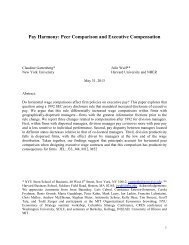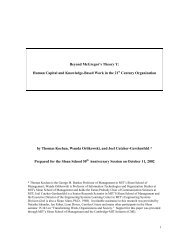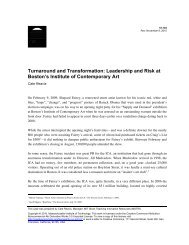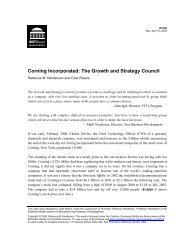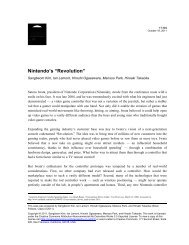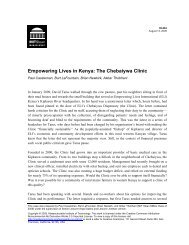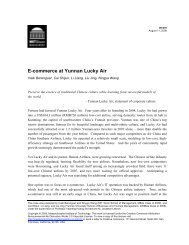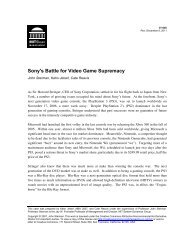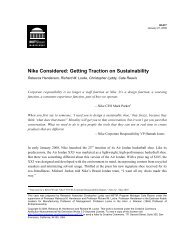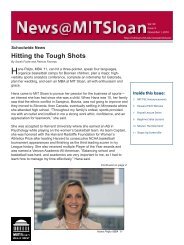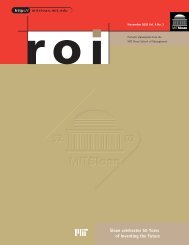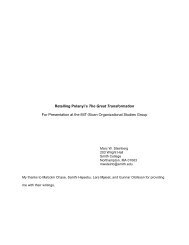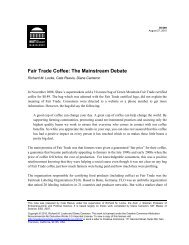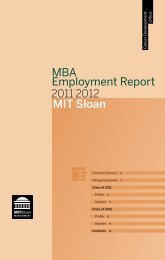Understanding earnings quality - MIT Sloan School of Management
Understanding earnings quality - MIT Sloan School of Management
Understanding earnings quality - MIT Sloan School of Management
Create successful ePaper yourself
Turn your PDF publications into a flip-book with our unique Google optimized e-Paper software.
Hung (2001) index <strong>of</strong> accrual accounting intensity and negatively associated with share ownership<br />
concentration. Somewhat weaker evidence suggests that the occurrence <strong>of</strong> the accrual anomaly is<br />
negatively related to investor rights. Pincus et al. (2007) interpret the results, taken together, as<br />
suggestive that <strong>earnings</strong> management is associated with the accrual anomaly. Biddle and Hilary<br />
(2006) document that smoothness using the Leuz et al. (2003) measure is associated with lower<br />
investment efficiency as measured by investment cash flow sensitivity metrics (see also Verdi, 2006).<br />
4.4 Summary<br />
The cross-country studies allow inferences about the impact <strong>of</strong> certain control mechanisms<br />
that are not possible using a sample <strong>of</strong> U.S. firms because <strong>of</strong> a lack <strong>of</strong> variation in the control<br />
mechanism within the U.S. This branch <strong>of</strong> studies generally concludes that <strong>earnings</strong> <strong>quality</strong><br />
(including <strong>earnings</strong> management) is influenced by investor protection, bank versus market-oriented<br />
economy, code versus common law tradition, accounting standards, and managers’ and auditors’<br />
incentives. There is not much conflicting evidence. The cross-country variation is generally<br />
asserted to proxy for very broad theoretical constructs such as differences in the demand for<br />
information or the ability <strong>of</strong> accounting rules to reflect fundamental value. The cross-country<br />
studies are not designed to provide inferences about specific internal control mechanisms.<br />
The cross-country studies commonly use return-based <strong>earnings</strong> <strong>quality</strong> measures such as<br />
ERCs and timely loss recognition. There are many differences across countries that can affect these<br />
returns-based metrics other than the institutional factors envisioned as determinants by the<br />
researchers. The studies clearly recognize the potential for alternative explanations for the results,<br />
and most studies either use empirical methods to control for un-modeled sources <strong>of</strong> cross-country<br />
variation or model expected sources <strong>of</strong> variation such as industry concentration. However, even<br />
79



